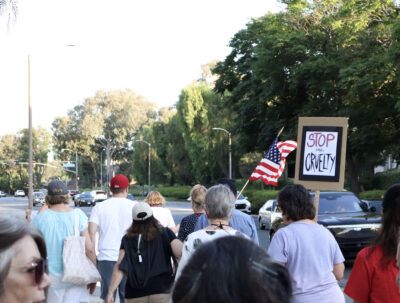When we learn about the worst massacres in human history, we’re usually only given a very brief overview of these atrocities. Sadly, this incomplete education causes us to become apathetic toward the countless victims, and we never fully understand the cruelty and inhumanity they experienced. Most lectures about genocides only teach a quick generic summary of the sickening things that transpired during them — and a few basic facts about the events, such as the time period, location and the overall number of people killed.
While this general information does help us somewhat understand the magnitude of the world’s most appalling atrocities, it doesn’t show the immense suffering so many souls had to endure.
When we ignore the detailed, comprehensive accounts of the men, women and children who were tortured during the worst crimes against humanity, the most monstrous actions of mankind are gradually sanitized.
Most of the world is aware 11 million people were slaughtered during the Holocaust. However, many young individuals today, with eight decades of separation from it, are ignorant of the hideous details of the Holocaust. There are not many Holocaust survivors still with us, so it’s up to the few who remain to educate everybody about this shocking catastrophe.
Thankfully, there are Holocaust survivors who’ve courageously talked to people across many nations about what happened during that horrifying time in history. One of these extraordinary people is Eva Schloss.
Last year, I had the tremendous privilege of hearing Schloss speak. I also read her autobiography, “Eva’s Story,” to get even more insight on her experiences during her imprisonment at the Auschwitz-Birkenau concentration camp. Her heart-wrenching description of the terror that was Auschwitz-Birkenau helped me visualize the devastation the Nazis caused. The grim pictures she painted with her words opened my eyes, and I saw clearly how the Nazis put people through hell.
Holocaust victims were subjected to grisly physical abuse, harsh malnourishment, vile diseases, exhausting forced labor and anguishing mental breakdown. Eva witnessed people dying all around her from ailments, hunger and other abominable things. She almost perished multiple times from deadly illnesses and being forced to endure severe weather. She deteriorated from starvation and being denied food. It’s nothing short of a miracle that Eva came out alive.
The deranged people ruling over the camp did everything within their power to torture and dehumanize their captives, both physically and psychologically. Every prisoner had their arm stamped with a numerical tattoo, stripping them of their humanity. They had to sleep in cramped, filthy barracks — where diseases were quickly spread. At the end of every day, they were forced to carry buckets of their own defecation to the toilet block, often spilling overflowing excrement on themselves. Many poor souls who couldn’t take the abuse anymore tried to escape, but were almost always caught — and brutally slain.
When Eva contracted typhus within days of her arrival at Birkenau, she initially refused to go to the hospital block. She knew that if the Nazis detected any sign of weakness, they would deem her “useless” and kill her. Eva had to make a terrifying decision between seeking treatment, which would mean admitting she was ill, putting her in mortal danger of facing the full wrath of the Nazis; or denying herself medical help. Her symptoms eventually became so severe that she had no other choice but to go to the hospital block. In a stroke of lucky coincidence, Eva’s cousin Minni was working at the hospital block.
Even though she was a prisoner, Minni held a relatively decent position in the camp because her husband was a skin specialist who had treated Germans for skin disorders. Minni was working as a nurse in the hospital block and was able to help Eva and her family. She treated Eva and would also end up saving the life of Eva’s mother (Fritzi).
Upon arrival, Eva and her mother were separated from her father (Erich) and brother (Heinz). Not knowing their fate was a constant source of fear for Eva. She was deathly afraid she would be split apart from her mother and be all alone in the world. Eva was repeatedly threatened with death every day, but was even more worried about her family’s well-being.
In October 1944, Fritzi and a group of women were “selected” by Dr. Josef Mengele, who was infamous for conducting horrible experiments on prisoners. Being “selected” meant torture or death. Thankfully, Minni, through her advocation and protection, freed Fritzi from the clutches of Mengele. Minni saved Fritzi’s life, but Eva was still separated from her mother for two months and believed she was dead.
Eva and Fritzi were eventually reunited, and both survived. However, a few months later they discovered the horrible news that Erich and Heinz didn’t make it. Eva’s brother and father died during the forced marches just before the Russian army liberated the camp. The Nazis were desperately trying to cover their tracks and hide the evidence of their crimes, and it was at the very end, after suffering through daily abuse for many months, that Erich and Heinz succumbed. Eva’s father and brother, whom she loved so much, were taken away from her.
Eva has gone on to live a fulfilling life, but she never got to share it with her father or brother. However, even after suffering through all of this, and losing so much, a new happy future would be forged: Eva’s mother married Otto Frank, the only surviving member of his family. Because of this marriage, Eva is officially the stepsister of Anne Frank.
Eva has said, “My story is the story of Anne Frank after her diary ends.” Eva initially felt great resentment toward Germany and Germans in the aftermath of the Holocaust, but Otto Frank helped her get rid of the bitterness she was carrying. Eva wouldn’t forget his words, “Well, after all, not all Germans are bad. We are also Germans. You can’t condemn them forever. That would be like Hitler — condemning a whole people.”
Eva’s story shows the world how sick the Nazis were. It also shows the tremendous strength and courage a person can have when faced with evil. The Nazis were the most sadistic butchers in history. We should never forget what they did, but we also can’t hold a grudge against all Germans. Hating an entire group of people for the actions of some would, as Otto Frank said, make us no better than Hitler.
Eric Goldin is a Santa Clarita resident.









